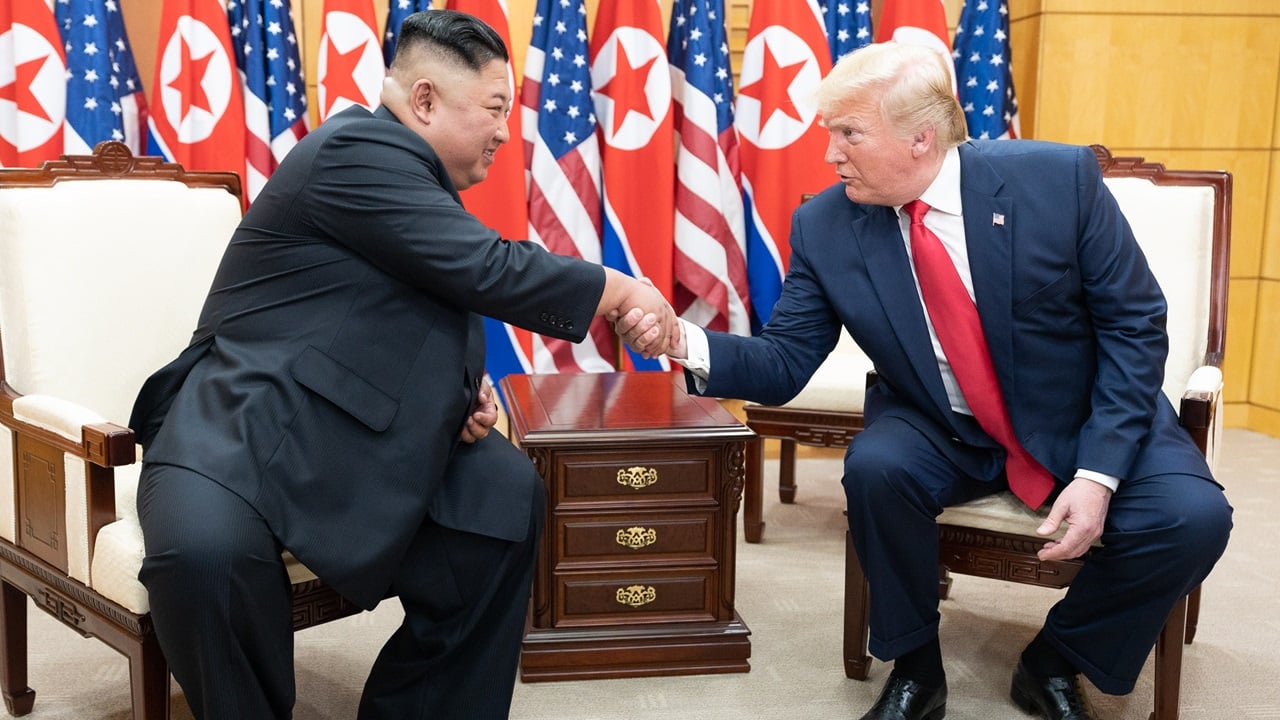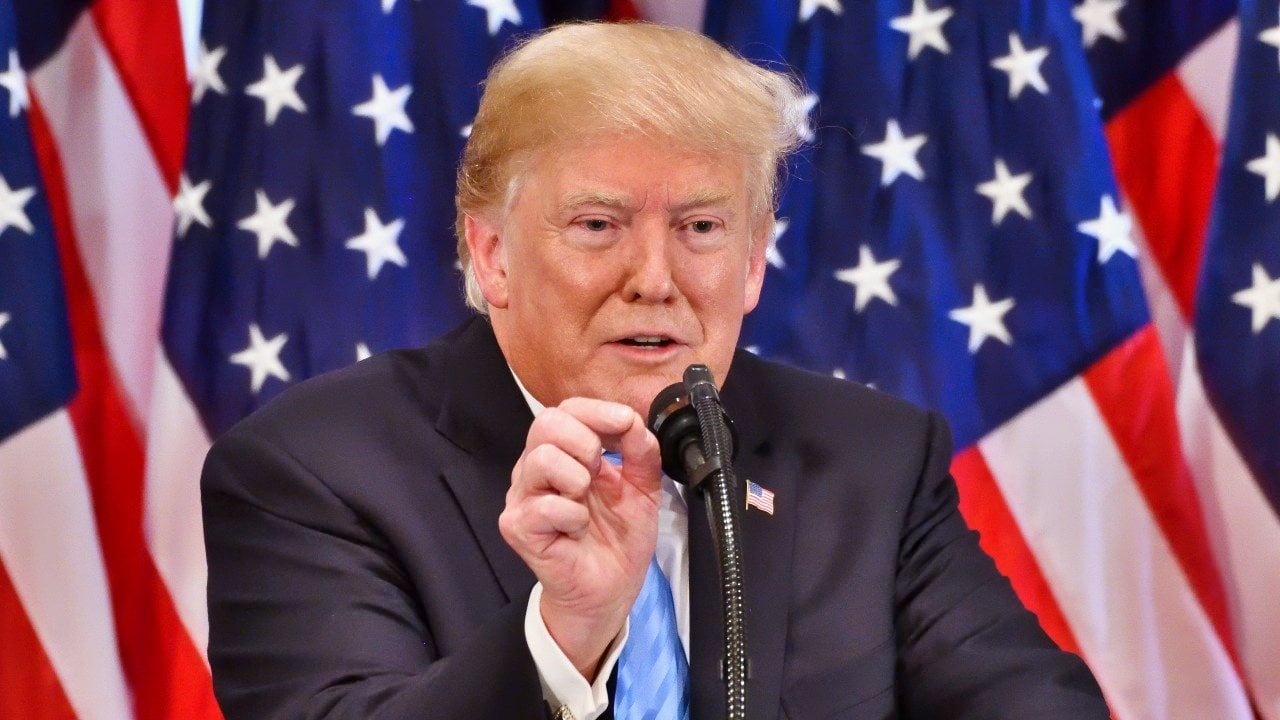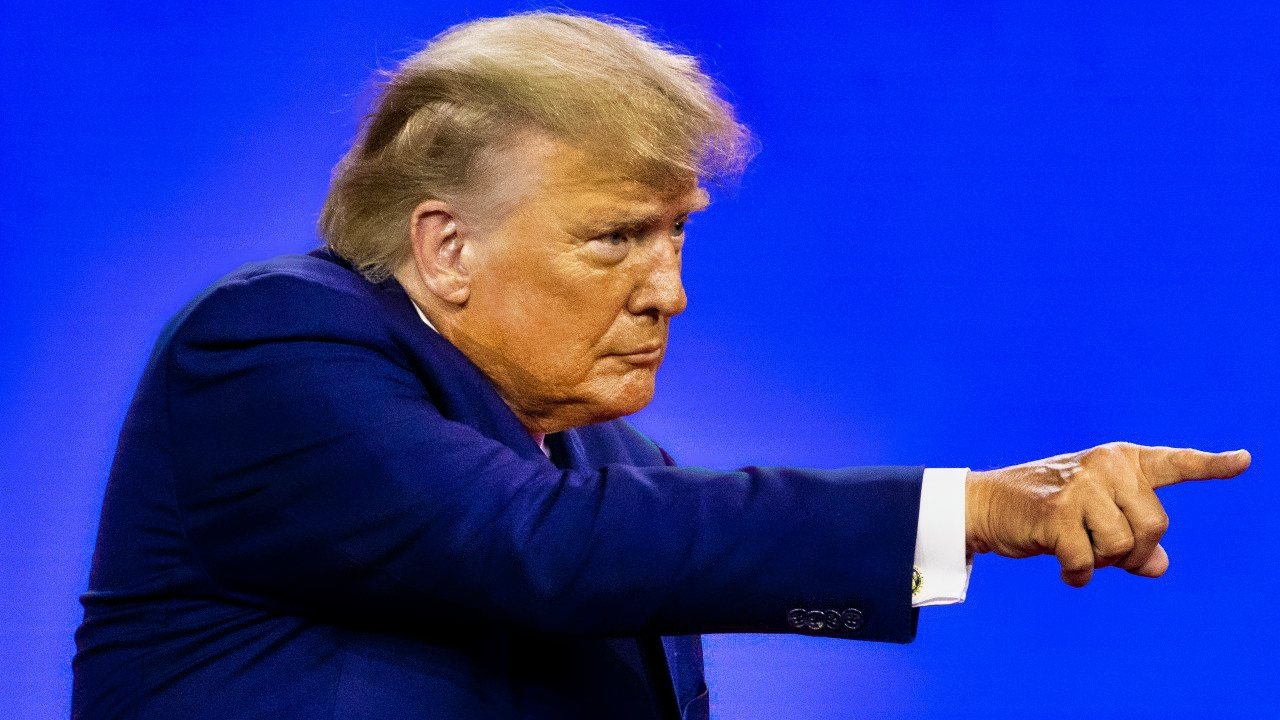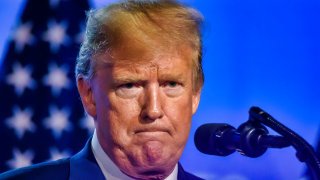The 4 Great Myths of Donald Trump’s Foreign Policy
The global foreign policy elite is in the throes of near hysteria at the realistic prospect of Donald Trump’s return to the presidency. And yet, they have little to fear.
The global foreign policy elite is in the throes of near hysteria at the realistic prospect of Donald Trump’s return to the presidency.
International conferences, newspaper opinion pages, and television commentators seek to outdo one another with dire predictions should Mr. Trump reclaim the White House – from the death of American democracy to the complete withdrawal of America from global leadership, to even the specter of a supposedly pro-Moscow leader assuming control of the U.S. national security apparatus.
Such hyperbolic claims have been repeated so often since Mr. Trump’s emergence on the national political scene almost a decade ago, that many Americans have become inured to their inaccuracy.
Yet a clear appraisal of Mr. Trump’s actual foreign policy record as President should make clear that the oft-repeated warnings from the global foreign policy commentariat bear little resemblance to reality and are, in many cases, the opposite of Mr. Trump’s positions and actions while in office.

Trump the Warmonger
From the moment Mr. Trump entered the 2016 presidential race, establishment commentators denounced him as reckless and a potential threat to international peace. Mr. Trump’s unique rhetorical approach to diplomacy was considered not just déclassé, but dangerous, by the global commentariat, with predictions of imminent, Trump-induced conflict common throughout his presidency. Yet, particularly in view of the international destabilization that has occurred since Mr. Trump left office, nothing could be further from the truth. Mr. Trump’s intuitive understanding of how to maintain a secure and prosperous global order was predicated on overwhelming American military and economic strength; the “peace through strength” vision articulated famously by Ronald Reagan.
In contrast to his immediate predecessors and successor, Mr. Trump chose not to undertake unnecessary foreign military interventions (e.g. Iraq, Libya) or to allow American deterrence to be lost through hollow rhetoric (e.g. Syria) or the perception of American weakness by our adversaries (e.g. Afghanistan, Ukraine, the South China Sea). The lack of global conflict on his watch was not an accident of history; it was a deliberate reaction to policies formulated by Mr. Trump and implemented by his Administration.
Donald Trump the Isolationist
The most-repeated claim of the establishment is that Mr. Trump is an isolationist with an “America First” credo borrowed from the anti-interventionists of the pre-World War II period. Mr. Trump has long expressed skepticism about prolonged U.S. military entanglements abroad, a position he shares with such foreign policy luminaries as Brent Scowcroft and Colin Powell. But, during his four years in office, rather than withdraw the United States from the world, Mr. Trump simply sought to change the ways in which the U.S. engaged globally, particularly in comparison with Presidents Obama and Biden.

In contrast to the Democratic Party’s vision of a deeply flawed America with unending capacity for overseas intervention, Mr. Trump saw an economically and militarily overstretched America that was foregoing its core interests in favor of ancillary entanglements. Under his leadership, America refocused on a new era of Great Power competition; pursued historic peace negotiations in the Middle East and the Balkans that served U.S. national interests; built and expanded partnerships like the Quad with India, Japan, and Australia; modernized critical alliances like the North Atlantic Treaty Organization (NATO); and sought to rebalance outdated troop dispositions in Germany and the Middle East in favor of frontline deployments to Central and Eastern Europe and the Indo-Pacific.
Mr. Trump’s policies were never those of an isolationist, but rather a pragmatist with a keen sense of American power and capacity.
Trump Lacked a Strategy
Washington think tank denizens often portray Mr. Trump’s first Administration as lacking an overarching strategy. However, from his earliest days in office, Mr. Trump began dramatically altering the U.S. Government’s approach to the fundamental issue of our time: the threat posed by the Chinese Communist Party. Mr. Trump’s National Security Strategy realigned all elements of American national power to address this threat, with supporting documents like the National Defense Strategy close behind. By the time he left office in 2021, every corner of the Federal Government was engaged in hardening the U.S. from the CCP’s malign influence, an extraordinary evolution in just four years and a textbook example of grand strategy conceived and executed in real time.
Furthermore, Mr. Trump fully understood that America’s relative economic decline during the Obama years had limited Washington’s capacity to operate globally. Unlike too many in the U.S. political class, Mr. Trump was aware of the connection between ends and means in foreign policy and sought, successfully, a renewal of U.S. economic growth as a predicate for executing any long-term strategy.
Donald Trump is Pro-Putin
Perhaps no myth about the Trump foreign policy is more pernicious, or more false, than the claim that Mr. Trump is somehow favorably inclined to the Russian leader.
Mr. Trump’s rhetoric toward Mr. Putin was a reflection of his belief that Moscow, as a great yet declining power, remained relevant on the global stage and must be engaged. Yet Mr. Trump and his Administration were persistently clear-eyed toward the dangers posed by Mr. Putin and his regime, hence a record of policy actions that maintained deterrence in Ukraine and elsewhere. Mr. Trump provided Kyiv critical munitions that proved invaluable during the 2022 invasion, sanctioned countless Russian citizens for malign activity, fought aggressively against the NordStream II pipeline, and aided allies like Poland, Romania, and the Baltics in their deterrence efforts. That Mr. Putin did not undertake overt aggression during the Trump presidency is a reflection of these successes.
Don't Fear the Foreign Policy Return of Donald Trump
The establishment panic about Mr. Trump’s potential return has likely yet to reach its peak, with almost six months until the 2024 election. Americans would do well to ignore the fearmongering of the global foreign policy class and instead evaluate the world that was under Mr. Trump’s leadership: an international order defined by American prosperity, an intense focus on core U.S. interests, and a belief in robust deterrence as the surest guarantor of peace.

The Biden presidency’s manifest failures should remind Americans to trust their eyes and not the mythologizing of anti-Trump intellectuals.
About the Author: Alexander B. Gray
Alexander B. Gray is the Chief Executive Officer of American Global Strategies LLC, an international strategic advisory firm that he co-founded with former U.S. National Security Advisor Robert C. O’Brien. In addition to the day-to-day management of the firm, Mr. Gray’s wide-ranging practice includes the defense, aerospace, maritime, and technology sectors. Mr. Gray most recently served as Deputy Assistant to the President and Chief of Staff of the White House National Security Council (NSC), where he directed the daily operations of the National Security Advisor’s immediate office, as well as the budget, personnel, and security functions of the NSC. Previously, he served in the White House as Special Assistant to the President for the Defense Industrial Base at the National Economic Council (NEC), the principal Executive Office of the President (EOP) official responsible for matters impacting the defense and manufacturing industrial base, and as the first-ever Director for Oceania and Indo-Pacific Security at the NSC.
Image Credit - Shutterstock and Creative Commons.


